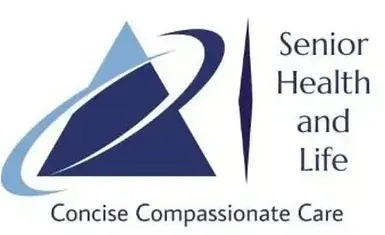How to avoid Medicare mistakes
How to avoid Medicare mistakes
If you are getting close to your 65th birthday, you need to know how to avoid Medicare mistakes. Some mistakes can be difficult to repair and may end up costing you money.
Let’s start by explaining what original Medicare is; Original Medicare is a health insurance program offered by the federal government. There are 2 parts to original Medicare. The first part is Part A. In general, Part A covers hospital costs. The second part is Part B. Part B covers things such as doctor’s visits as well as other outpatient services. Most providers participate in original Medicare.
Here are some mistakes people make with Medicare:
1. Waiting to long to sign up for Medicare
There are specific time that you can sign up for Medicare coverage. The most common is your initial enrollment period. This enrollment period begins 3 months before he month you turn 65 and ends 3 months after the month you turn 65.
If you choose not to sign up during your initial enrollment period (IEP), you will need to wait until the Medicare general enrollment period (GEP). The GEP starts January 1st and ends March 31st each year. Your Medicare coverage begins the first day of the month after you apply.
Signing up for Medicare late may leave you with a late enrollment penalty. This penalty can add 10% to your monthly Part B premium for every year (12 months) you delay. This penalty applies only if you do not have other credible insurance coverage (credible coverage is most likely an employer sponsored plan). If you have insurance either through yours or your spouse’s employer, you may be able to delay your Medicare enrollment until you retire or lose your group coverage.
2. Not enrolling when your employer coverage is considered secondary insurance
Although your employer provides health insurance, you may still need to enroll in Medicare. One thing that helps determine if you need to sign up is the size of the company. If there are 20 or more employees, your group health insurance is considered your primary coverage and Medicare is secondary coverage. When this is the case, you may want to delay signing up for Medicare while you or your spouse are still working.
If the employer has less than 20 employees, Medicare normally becomes the primary insurance once you turn 65 and the employer coverage becomes secondary. This can happen even if you have not signed up for Medicare yet.
Additionally, both retiree coverage and COBRA are considered secondary coverage. This means these plans will pay for claims only after Medicare has paid their portion. If this is the case, signing up for Medicare on time is very important.
Because there are exceptions to every rule, it is important to speak with your human resources or benefits manager to determine if your employment based health insurance is primary or secondary to Medicare.
3. A lack of understanding of your coverage options
Because original Medicare does not cover 100% of your medical expenses, you will need some type of additional coverage. In general, you have two options for coverage. You can choose either original Medicare with a supplement and drug plan or a Medicare Advantage plan. Many factors will help you decided which type of coverage is best for you. You will have to consider things such as; your health, the doctors you see, the area you live in (plan availability), your finances and weather or not you travel.
Some people prefer a Medicare Supplement plan:
These plans are a good choice for individuals who do not want to check a doctor’s network and do not like the idea of referrals for services needed. If you are considering this choice, keep in mind, you will need to purchase a separate prescription drug plan. Both the Medicare supplement and the drug plan will have a monthly premium.
When choosing a prescription drug plan (Part D), always check your list of medications and see which plan covers them the best
Find out more about Medicare Supplement plans
Medicare Advantage plans are another choice:
Medicare Advantage plans are offered by private insurance companies. They cover Medicare Parts A & B and most times Part D benefits as well. These plans are very competitive and offer many additional benefits that you cannot get with a Medicare Supplement plan. Some of the benefits include dental, eye and hearing as well as free transportation to medical appointments and much more.
Some things to consider when choosing a Medicare Advantage plan are; are you current doctors in the plans network? Although many of the plans are PPOs (this means they provide out-of-network coverage), Some of the plans are HMOs and they do not provide out-of-network coverage. This means it is very important to check your list of providers (doctors & hospitals) and make sure they are in-network with any plan you are considering. Click here to learn more about MA plans.
4. Forgetting to sign up for Part D
Because original Medicare does not cover prescriptions, you will need to enroll in a plan that covers your medications. Make sure you have Part D coverage as soon as you are eligible for Medicare. If you do not have credible drug coverage when you are first eligible, Medicare will penalize you. The penalty may not be a large amount but, it will last the entire time you are on Medicare.
Credible coverage is Drug coverage that is considered equal to or better than what a Part D plan provides. If you are either staying on employer coverage, receive retiree benefits or Tricare military benefits you probably have credible drug coverage. If you choose to enroll in a Medicare Advantage plan, most of them include Part D coverage as well.
When you choose to purchase a Medicare Supplement plan, you need to purchase a stand alone prescription drug plan (part D). Independent insurance companies offer Part D plans and the coverage varies from plan to plan. If you choose to purchase either a stand alone drug plan or a Medicare Advantage plan, you need to check the cost of your prescriptions on that possible new plan.
Each part D plan has a list of covered drugs (a formulary) this will tell you if your prescription is covered and what your co-pay will be. If your drug is not on the formulary, you may need to request an exception from the plan, pay for the drug out of pocket or file an appeal wit the insurance company to cover the cost.
If you lose your drug coverage for some reason
You are eligible for a special enrollment period for up to two-months after. During this special enrollment period, you can sign up for a Part D plan without a penalty. If for some reason you lose your drug coverage and do not replace it for over 63 days, you may have to pay a penalty.
5. Being unaware of your Out-of-pocket costs
Once you meet your Medicare deductibles, Medicare pays about 80% of approved charges. You will be billed for the remaining cost as well as the deductible. That is why it is a good idea to purchase either a Medicare Supplement and Prescription drug plan or a Medicare Advantage plan to help pay these costs.
Here is a list of some of the costs associated with Medicare:
- Plan premium – Medicare consists of many parts. Most people qualify for free Medicare Part A (hospital coverage) if they have worked the required amount of 40 quarters. If you have not worked long enough, there is premium for Medicare Part A. Medicare Part B (doctor’s visits) has a premium of $164.90in 2023. You will need to pay this amount via deduction from your Social Security check or by quarterly invoice. If you enroll in a Medicare Supplement plan and a Part D plan, they will both have a premium to pay. Medicare advantage plans may also come with a monthly premium although there are many $0 options for these plans.
- Deductible – In 2023, the deductible for Medicare Part A is $1,600 for each benefit period. It is not an annual deductible. The Part B deductible is $226 annually in 2023. Most Part D plans also have deductibles, but this varies by plan.
- Co-pays – this is an amount that is decided by the plan you are on and is applied to specific services/providers you use for care. To view the co-pays associated with your plan, please refer to the summary of benefits for your plan.
- Coinsurance – this is a percentage of the cost of services or prescriptions you receive. Original Medicare usually pays 80% of the cost leaving the beneficiary with a 20% cost share. With Part D plans, you may need to pay a percentage of the cost for more expensive name brand drugs.
6. Not signing up because you assume you can’t afford to get Medicare coverage
Fortunately, there are many programs in place to help individuals with limited income pay premiums and cost shares.
The federal government offers a program called Extra Help. This program helps qualified individuals pay for both Part D premiums and the cost of their medications. To see if you qualify for Extra Help; click here.
In addition to the federal Extra Help program, several states offer pharmaceutical assistance. These program can also help individuals pay for prescriptions. Check to see if the programs are available in your state.
Most states offer the MSP (Medicare Savings Program). This program offers help to pay for both Part A & Part B premiums as well as deductibles, co-insurance and co-pays. There are 4 levels of help available on this program based on the individuals income. Learn more about the MSP
Click here to view more images by this artist
The post How to avoid Medicare mistakes appeared first on Crowe & Associates.











